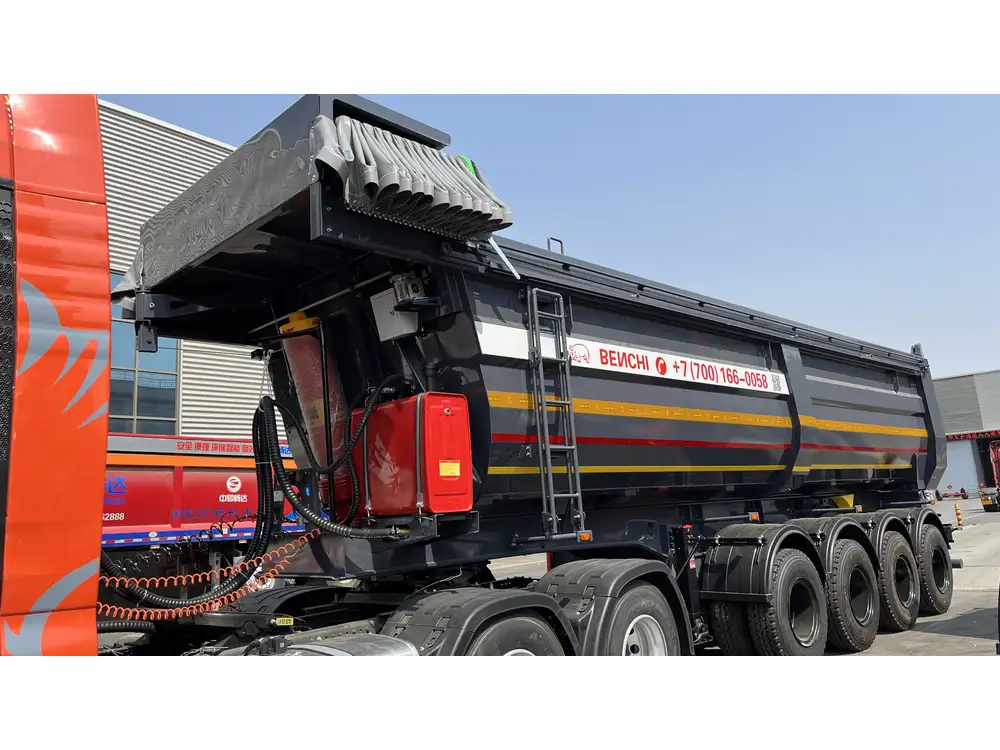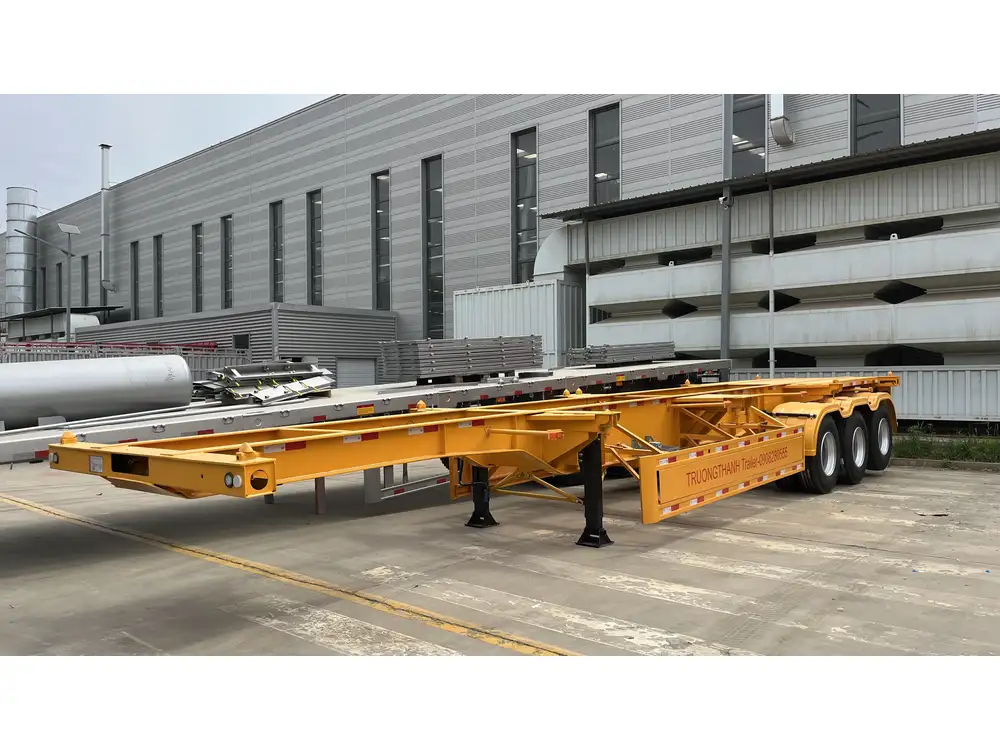When it comes to transporting oversized loads, securing a reliable flatbed trailer rental can make all the difference. A 25-foot flatbed trailer stands as an invaluable asset, particularly for those lifting or relocating substantial materials. From construction equipment to furniture, having the right trailer ensures safety, efficiency, and compliance with transport regulations. This comprehensive guide will delve into where to rent a 25-foot flatbed trailer, dissecting various facets that renters should ponder.
Understanding Flatbed Trailers
What is a Flatbed Trailer?
A flatbed trailer is a versatile piece of equipment characterized by a flat, level bed with no walls or roof. Its design allows for easier loading and unloading, making it highly sought after for transporting machinery, lumber, and large goods. Flatbed trailers can handle heavier loads compared to enclosed trailers, making them ideal for industrial applications.

Key Features of Flatbed Trailers
| Feature | Description |
|---|---|
| Length | Typically available in various lengths, with 25 feet being a standard size for oversized loads. |
| Weight Capacity | Generally ranges from 10,000 to 48,000 pounds, dependent on the trailer type and construction. |
| Material | Made from durable steel or aluminum, enhancing strength and longevity. |
| Axles | Usually equipped with two to four axles, providing better weight distribution. |
| Accessories | May come with additional features such as tie-down points, ramps, and side rails for added safety. |
Types of Flatbed Trailers
Before diving into rental options, it’s prudent to understand the various types of flatbed trailers available:
- Standard Flatbeds: Commonly used for general cargo and materials.
- Step Deck Trailers: These feature a lower deck height, ideal for taller loads that must adhere to road height restrictions.
- Double Drop Trailers: With a lower middle section, they are perfect for transporting heavy machinery.
- Hotshot Trailers: Designed for smaller, urgent deliveries, they typically tow smaller loads than standard flatbed trailers.
Where to Rent a 25-Foot Flatbed Trailer

Local Equipment Rental Companies
Rental companies often have a variety of trailer options. Search for local equipment or trailer rental services, as they are frequently stocked with flatbed trailers. Here’s a structured way to approach this:
| Rental Company | Description | Location Availability | Website |
|---|---|---|---|
| United Rentals | Offers a wide range of trailers, including 25-foot flatbeds. | Nationwide | unitedrentals.com |
| U-Haul | Known for flexible rental terms and local options. | Nationwide | uhaul.com |
| Hertz Equipment Rental | Provides a variety of flatbed trailers for different needs. | Selected locations | hertzequipment.com |
| Enterprise Truck Rental | Focuses on professional-grade equipment rentals, including trailers. | Select states | enterprisetrucks.com |
| Home Depot Tool Rental | Ideal for DIY projects; offers a limited selection of trailers. | Store specific | homedepot.com |
Online Marketplaces
Online platforms have gained immense popularity, catering to users seeking DIY solutions and rentals. Marketplaces provide a convenient way to compare prices, read reviews, and find locations:
- Facebook Marketplace: Local listings often feature available rentals from individuals and companies.
- Craigslist: A wealth of regional rental options, but exercise caution and prioritize safety.
- Peer-to-Peer Rental Websites: Websites like Turo or Outdoorsy occasionally include trailer options.
Specialty Trailer Rental Companies
Certain companies specialize exclusively in trailer rentals. These organizations typically offer tailored services and an extensive fleet:
- Big Trailer Rentals: Focuses on heavy-duty and specialized trailers for construction and industrial needs.
- National Trailer Rentals: Known for their extensive fleet and competitive pricing structures.
- Custom Truck One Source: Provides an array of trailer types, including 25-foot flatbeds specifically designed for the heavy load transportation sector.

Pricing Overview
Rental prices can fluctuate significantly based on various factors including but not limited to location, rental duration, and trailer condition. Here’s a simplified price comparison:
| Rental Duration | Average Daily Rate | Average Weekly Rate | Average Monthly Rate |
|---|---|---|---|
| 1 Day | $50 – $100 | N/A | N/A |
| 1 Week | N/A | $300 – $600 | N/A |
| 1 Month | N/A | N/A | $1,000 – $2,000 |
Additional Costs
- Insurance: Always check if the rental company has sufficient insurance coverage; additional rental insurance might be necessary.
- Deposit: Many places require a deposit or preauthorization on your credit card.
- Insurance for Equipment: Cover damage or theft during the rental period.
Preparing for Rental

Assess Your Needs
- Load Type: Consider what you will be transporting. Ensure the trailer type suits your cargo requirements.
- Weight and Dimensions: Measure the total weight and dimensions of your load to ensure compatibility with the chosen trailer.
Documentation
Prepare necessary documents to facilitate a hassle-free rental process:
- Driver’s License: A valid driver’s license is crucial.
- Insurance Policy: Proof of insurance may be required by certain rental companies.
- Payment Method: Credit cards are typically preferred for security deposits.
Inspecting the Trailer
Before finalizing your rental:
- Physical Inspection: Look for damages, signs of wear, tire conditions, and ensure the brakes are functional.
- Verify Load Capacity: Confirm the trailer can handle the weight of your cargo.
- Additional Equipment: Check for proper tie-down provisions, ramps, and other accessories that might be included.

Transport Guidelines and Tips
- Loading Protocol: Always load heavier items first and distribute weight evenly. This ensures stability during transportation.
- Safety Chains: Utilize safety chains to secure the trailer to your vehicle and prevent disconnection.
- Load Securing: Employ straps, ropes, or nets to secure your cargo, minimising potential movement during transport.
- Compliance: Be aware of local transportation laws and regulations that may apply to flatbed trailer loads.
Frequently Asked Questions
How do I determine if I need a flatbed trailer instead of an enclosed trailer?
Flatbed trailers are ideal for oversized or oddly shaped loads that require ease of access for loading and unloading. Conversely, enclosed trailers protect goods from weather elements but limit height clearance.

Can I tow a flatbed trailer with my vehicle?
Ensure your towing vehicle has the right hitch and weight capacity before making arrangements. Check the trailer’s specifications against your vehicle’s capabilities for safe towing.
What should I do if I encounter issues during my rental period?
Immediately contact the rental company to report problems. Most companies will have protocols in place for breakdowns or equipment failure.
Conclusion
Renting a 25-foot flatbed trailer is an intricate but rewarding process, enabling seamless transportation of substantial cargo. By understanding the nuances of flatbed trailers, where to procure them, and how to properly use them, renters can ensure efficiency and safety.
With comprehensive planning, diligent execution, and a keen eye for details, the search for a rental trailer can lead to a successful endeavor without unnecessary headaches. Whether purchasing or renting, maximize your logistics with a trailer rental that meets your requirements, enhance your operational efficiency, and enjoy peace of mind throughout your journey.



